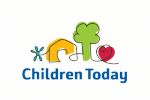|
By Dora Jacildo
According to certified mental health counselor Francoise Mathieu, “compassion fatigue is characterized by deep emotional and physical exhaustion and by a shift in a caregiver’s sense of hope and optimism about the future and the value of their work.” This can occur when staff are working with families who have been deeply traumatized and are constantly in crisis. If not properly addressed, compassion fatigue can affect an individual’s personal and professional life. April was a challenging month, to say the least. It seemed as if every day we were dealing with a crisis and the problems families were sharing were taking a toll on the staff. Within a two week period we had an infant on life support, a parent brutally attacked, a parent with suicidal symptoms, a parent with a life-threatening disease, and a family begging for our help in keeping Child Protective Services from taking their children. We know that working with children experiencing homelessness entails making a commitment to help beyond the classroom and beyond what would be expected of a typical child development center. And, at the same time, we must make a commitment to take care of ourselves, knowing that without doing so we run the risk of burn-out and vicarious trauma (negative emotional or psychological effects of the experience of helping people impacted by trauma). The culture of Children Today is grounded in empathy, not just for the children and families we care for, but for each other. Staff are encouraged to look to each other for support, to share their feelings, and to ask for help when they are overwhelmed or overwrought. Knowing that it’s okay to step away from a situation that is particularly troubling and that someone else will be there to take over for a while provides tremendous relief. Fortunately for us, working with children can be such a joy that they themselves contribute so much to the satisfaction we get out of helping others. All that being said, the only way to truly protect your health, your relationships, and your clients, is to make a commitment to implement self-care strategies into your life. They can be simple things like exercising, or delegating, or learning to say no more often. The important thing is to pay attention to your own needs and make time for yourself. Today, I’ll pick up my son from daycare and I’ll take him to the park to play dinosaurs before it gets dark. This will be the one thing I do today to nourish my spirit so that I can be fully present tomorrow. Comments are closed.
|
AuthorVarious members of the Children Today staff contribute to these blog posts. Archives
July 2024
Categories |
